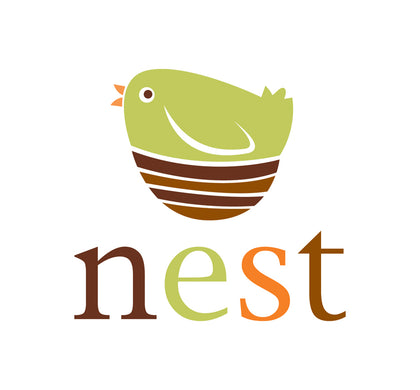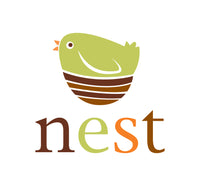by Nicole Blum and Catherine Newman
In today’s thriving maker culture, kids are hungry for hands-on guidance in creating stylish wearables and practical objects, or hacking and customizing existing ones. Authors Nicole Blum and Catherine Newman get them started with complete instructions for mastering six favourite fibre crafts. Step-by-step photos teach kids ages 9–14 the basics of how to sew, knit, crochet, felt, embroider, and weave, plus how to make three projects for each craft. (In our experience, children as young as 6.5 or 7 years old can well manage and be inspired by several crafts from the book). From woven patches and a knitted backpack to embroidered merit badges and a crocheted bracelet, the fresh, kid-approved projects encourage creative variations and build confidence along with valuable life skills.
Softcover, 208 pages. 20.3 x 2.3 x 25.1 cm
Storey Publishing, 2017. Printed in China.
From the Back Cover
Ready, Set, Make!
Show off your creativity and skills by embroidering a merit badge, knitting a backpack, crocheting a bracelet, weaving a key chain, and much more. With hooks and needles, thread and yarn, fabric and felt – plus a crafty spirit – you'll discover how easy it is to make fun stuff to wear and one-of-a-kind gifts to give using your own hands.
About the Author
Nicole Blum and Catherine Newman are the coauthors of Stitch Camp. They are longtime friends and cocreators who have been crafting for many years with each other, their families, and groups of kids at home camps and studio workshops. Blum is the coauthor of Improv Sewing. Newman edits ChopChop, a nonprofit family cooking magazine, and is the author of One Mixed-Up Night, Catastrophic Happiness, and Waiting for Birdy. Blum and Newman live in western Massachusetts.
Read more at the publisher's website.
Excerpt from the Book
Beanbag Hand Warmer
The project description below is an excerpt from “Stitch Camp” by Nicole Blum and Catherine Newman (Storey Publishing, 2017).
Toss them into a bucket and keep score — and they’re toys. Heat them in the microwave and pop them in your pockets — and they’re hand warmers. Either way, this is a project that comes together quickly, and it makes a great gift. Make your beanbag as big or small as you like, or vary the sizes for different projects.
What You Need
♦ Enough craft felt, polar fleece, or felted wool to cut a front and back piece
♦ Straight pins
♦ A small bowl (or a square cut from cardboard) for tracing (any size 3 to 5 inches is good)
♦ Chalk
♦ Scissors
♦ Embroidery floss or sturdy thread
♦ Sharp needle
♦ Rice or other grains, lentils or other small dried beans, or popcorn, for filling
♦ Kitchen funnel or a piece of paper or small spoon
How You Make It
1. Stack or fold the fabric so there are two layers and stick a pin through the middle to hold the layers together while you’re cutting. Trace the bowl or cardboard square onto the top layer with chalk. Keeping both pieces of fabric pinned together, carefully cut the shapes out. Taking your time here will make sewing easier, and you won’t have to fix rough edges later.
2. Measure an arm’s length of embroidery floss, thread your needle, and knot the end. Starting in between the two layers, push your needle up through the top piece of fabric and pull the thread through until the knot is snugly against the underside.
3. Stitch around the edge of both layers using a nice, even backstitch. It is important to make your stitches very close together so the filling won’t pop out, especially if you’re using rice.
4. When you have about 1 inch left open, stop sewing but don’t tie off your thread yet; just lay the needle and thread out of the way or push the needle into the fabric to keep it safe. Use the unstitched hole to fill the bag with rice, beans, or the filling of your choice. A kitchen funnel makes this easy, but you can roll up a piece of paper to make a funnel if you like, or just use a small spoon and some patience.
5. When the bag is full, finish stitching until you meet up with where you started, then tie off your thread and snip it close to the fabric. If it’s important to you to conceal the knot, you can push the needle between the two layers before knotting.
Tip: Materials for Hand Warmers
If you’re planning to offer your beanbags up (or use them yourself) as hand warmers, use wool felt for the outside. Synthetics can behave strangely in the microwave, which is where you’ll heat them up. Rice is our favorite choice for filling hand warmers (it smells good when you heat it.), but whatever you choose, don’t use popcorn.


























